What are prebiotic foods?
These five prebiotic foods can be found in most kitchens and will help your gut bacteria to thrive
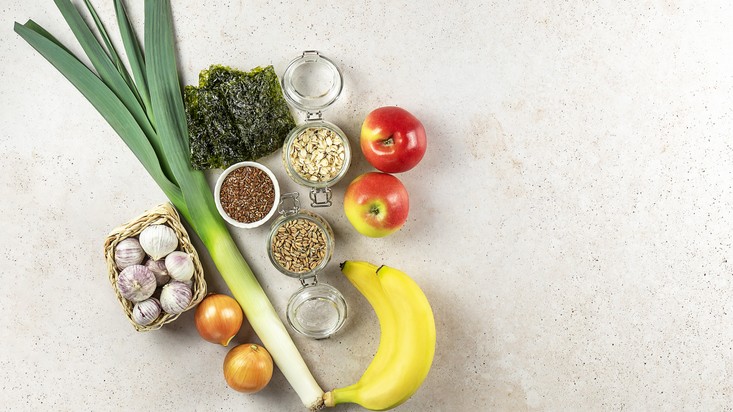
A balanced diet is essential for good health, so prebiotic foods are important. What we eat not only has a direct impact on our body, it also makes a big difference to the countless microbes that reside in our intestines. To keep our gut healthy, we need to eat prebiotic foods to help our good gut bacteria to thrive.
Prebiotics are types of fiber that are beneficial for the functioning of our gut microbes. But what are some prebiotic foods you can eat and which ones are best for your gut health?
Chicory root, Jerusalem artichoke and seaweed are great sources of prebiotics, but you may struggle to find these in your local supermarket or know how to cook with them. The good news is, you don’t have to resort to using niche food stores or supplements to top up your prebiotic intake. Many common food staples have been found to have a highly beneficial effect on our gut health – and some of them may already be in your kitchen cupboards. Here are five common prebiotic foods to feed your good gut bacteria.
Related: prebiotics vs probiotics: differences, benefits and foods.
Garlic
Garlic takes pride of place in many kitchens, its unmistakable flavor making it a popular cooking ingredient. But garlic is just as good for our health as it is for our taste buds.
Multiple studies have shown that garlic can have a wide-ranging impact on our bodies due to its antioxidant, anti-inflammatory and lipid-lowering properties. Regular consumption of garlic may help to prevent chronic conditions such as cancer, cardiovascular disease, hypertension and type 2 diabetes. What’s more, its bioactive compound allicin exhibits antibacterial, antifungal and immune-activating traits, which may explain why garlic has been used for centuries as a remedy for infections.
Garlic is also a great source of prebiotics. Fructooligosaccharides (FOS) in garlic have been shown to promote the growth of Bifidobacterium and Lactobacillus acidophilus, two highly beneficial gut bacteria strains. FOS may also stop ‘bad’ bacteria from inhibiting our gastrointestinal tract and improve the absorption of minerals. Not to mention, garlic contains a significant amount of inulin, which has been linked to improved immune responses and better metabolic health.
Get the world’s most fascinating discoveries delivered straight to your inbox.
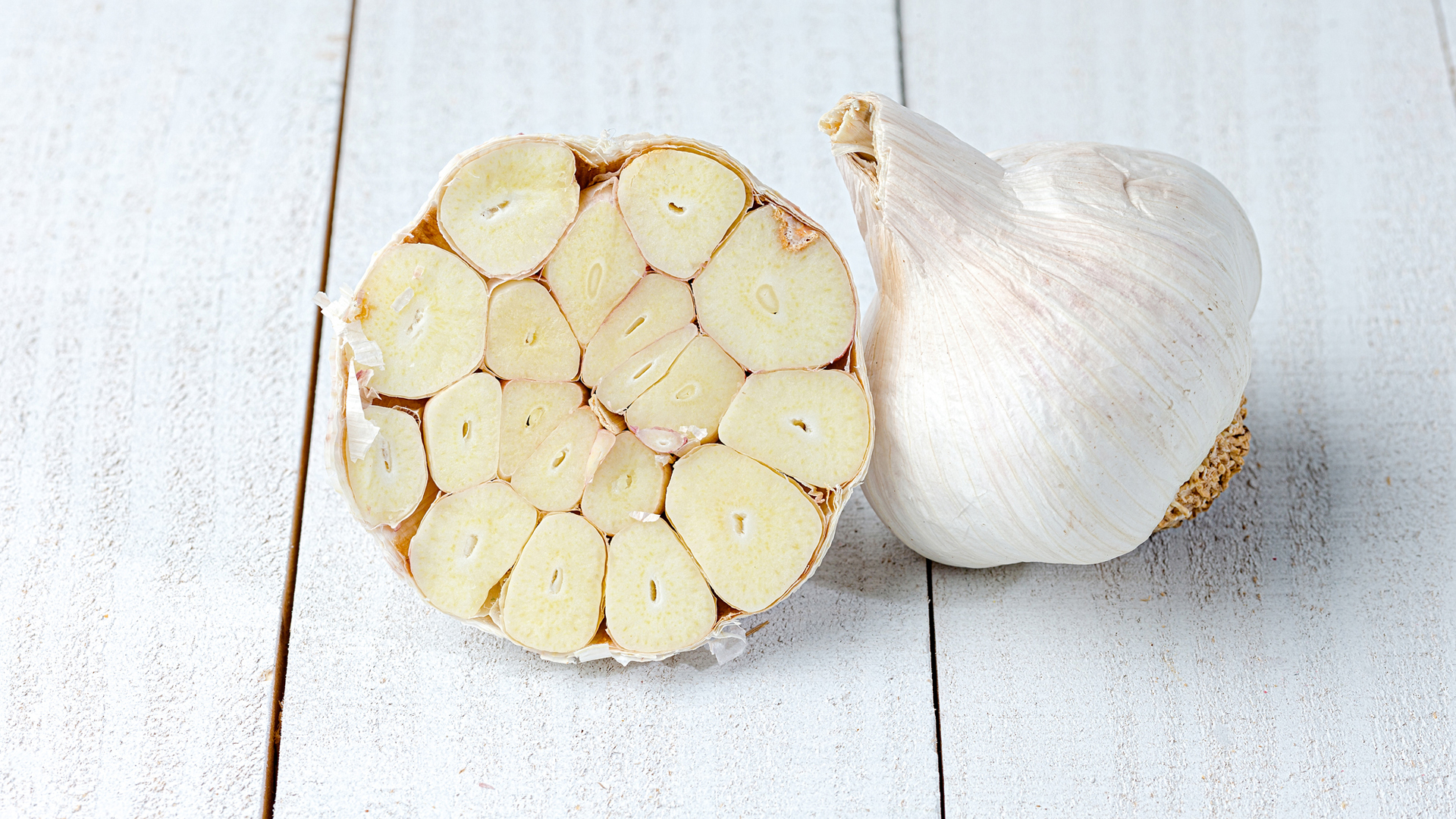
Onions
Onions are a staple ingredient in many dishes, their durability and resistance to shipping making them popular in every corner of the world. This humble vegetable is also an excellent example of a prebiotic food.
A substantial body of evidence suggests why onions have long been used for medicinal purposes. They possess strong antioxidant, anticholesterolemic, antimicrobial and anticancer properties. They may also help to prevent and treat metabolic problems.
Onions are a great source of prebiotics. Similar to garlic, they are rich in inulin and fructooligosaccharides. They also contain multiple organosulfur compounds (OSCs) that have been shown to exert a positive effect on gastrointestinal health and the immune system. OSCs change the composition of gut microbiota in ways that may be able to alleviate certain symptoms of IBS and reverse the damage caused to good bacteria by a high-fat diet.
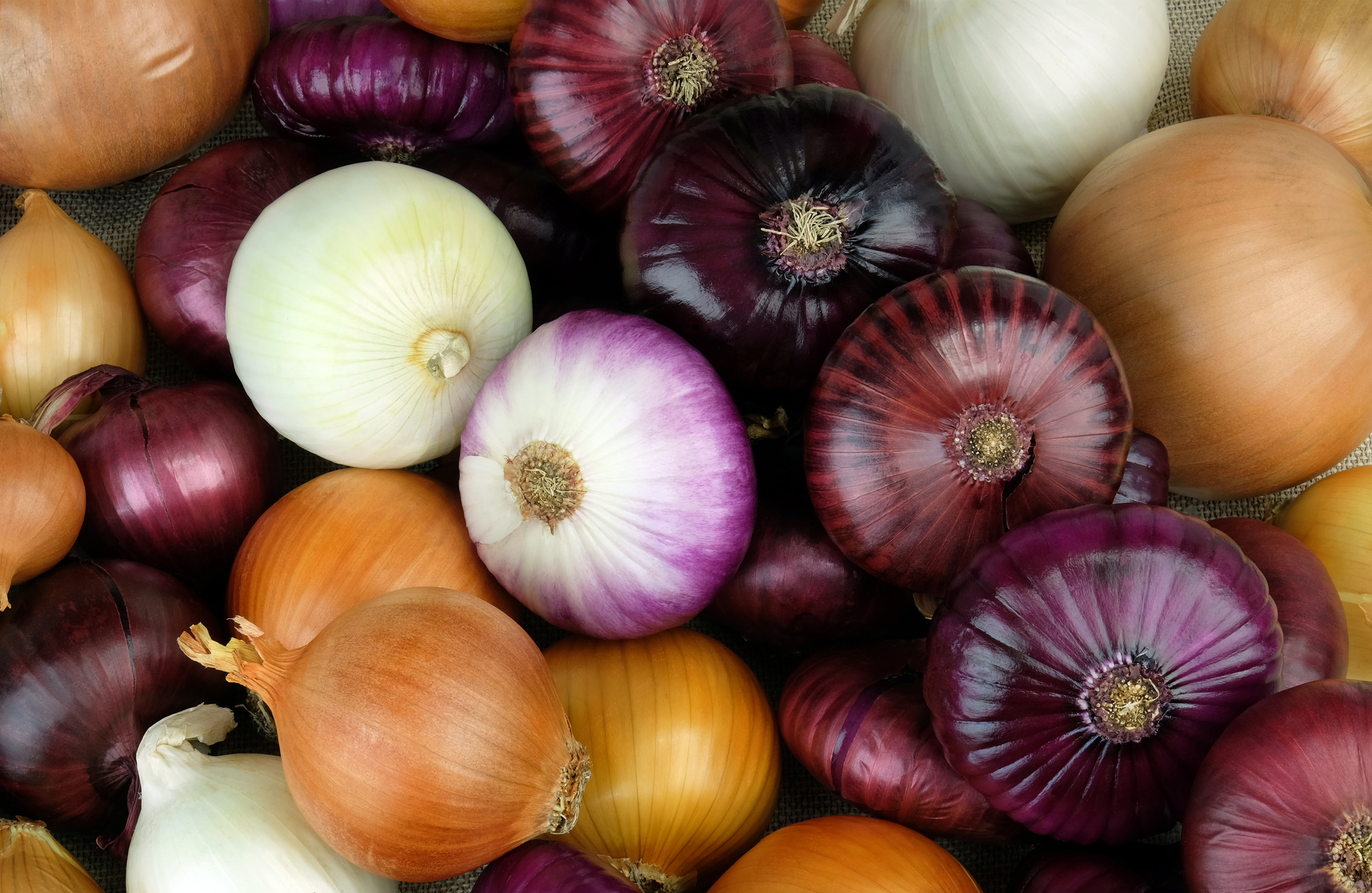
Bananas
Bananas are one of the most popular fruits worldwide. They’re perfect for an on-the-go snack, easy to store and very filling. But not only are bananas a great source of potassium and carbohydrates, they can also provide a good dose of prebiotics.
Bananas contain several powerful antioxidant compounds, including phenolics, carotenoids and phytosterols, which may help to reduce the risk of developing cardiovascular problems and chronic degenerative conditions. They are also high in resistant starch, a type of prebiotic particularly beneficial to colon health. Unripe (green) bananas are particularly high in this compound, with several studies suggesting that eating green bananas can result in improved insulin metabolism, improved weight control and reduced severity of complications stemming from diabetes.
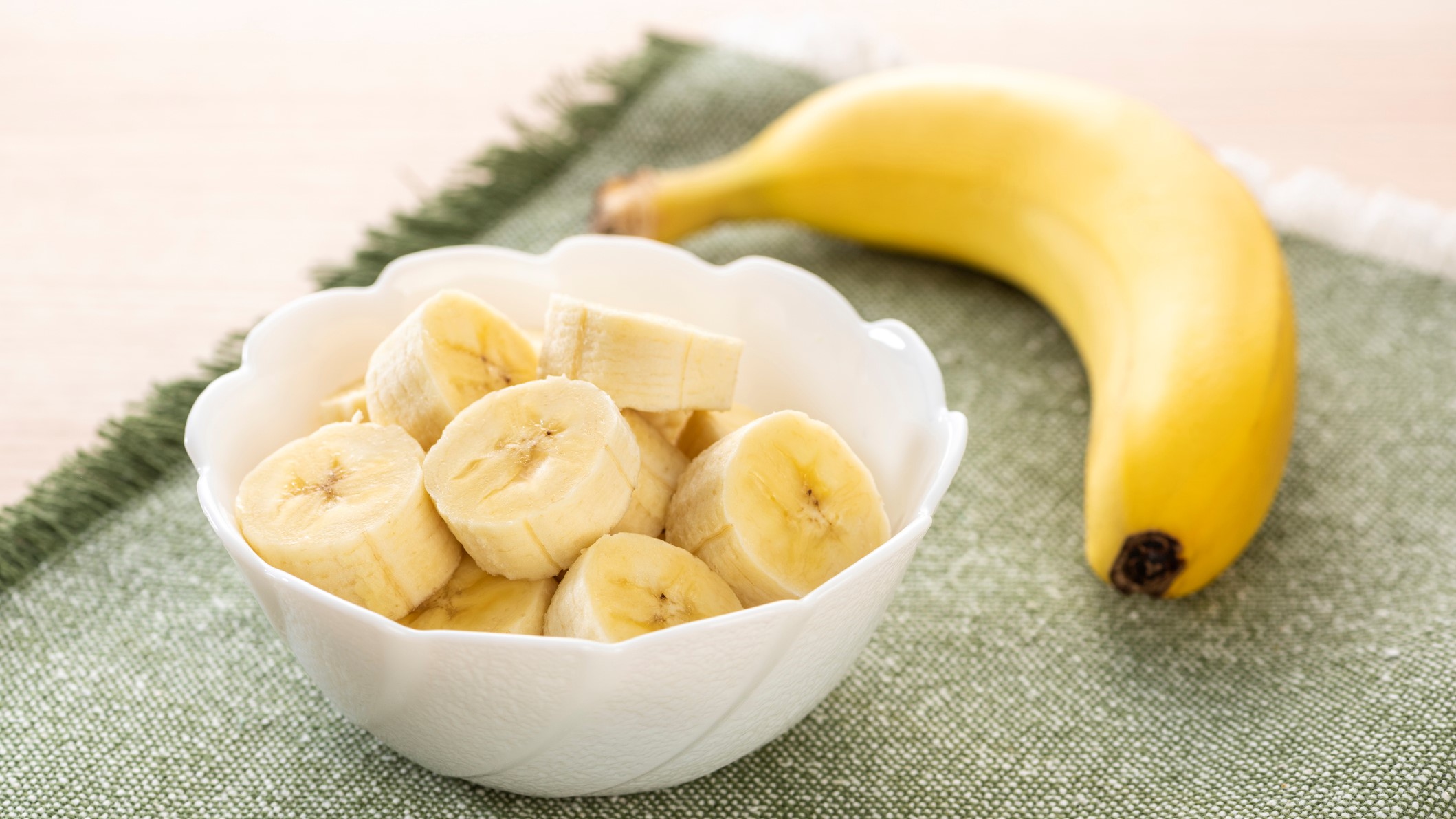
Apples
You’ve probably heard that ‘an apple a day keeps the doctor away’, and while this old proverb is rightfully exaggerated, there is a grain of truth to it.
Apples are a particularly rich source of phytochemicals that show strong antioxidative properties. Multiple studies have linked the consumption of apples with a reduced risk of developing cardiovascular disease, certain types of cancer, type 2 diabetes and asthma.
Apples provide a substantial dose of prebiotics. They are particularly rich in pectins, a form of carbohydrate that humans are unable to digest. When these compounds reach the intestines, gut microbes use them to produce short-chain fatty acids. These can help to rebalance the gut microbiota, decrease inflammation and improve the functioning of the immune system. But remember to leave the skin on, because this is where a lot of the fiber is stored.
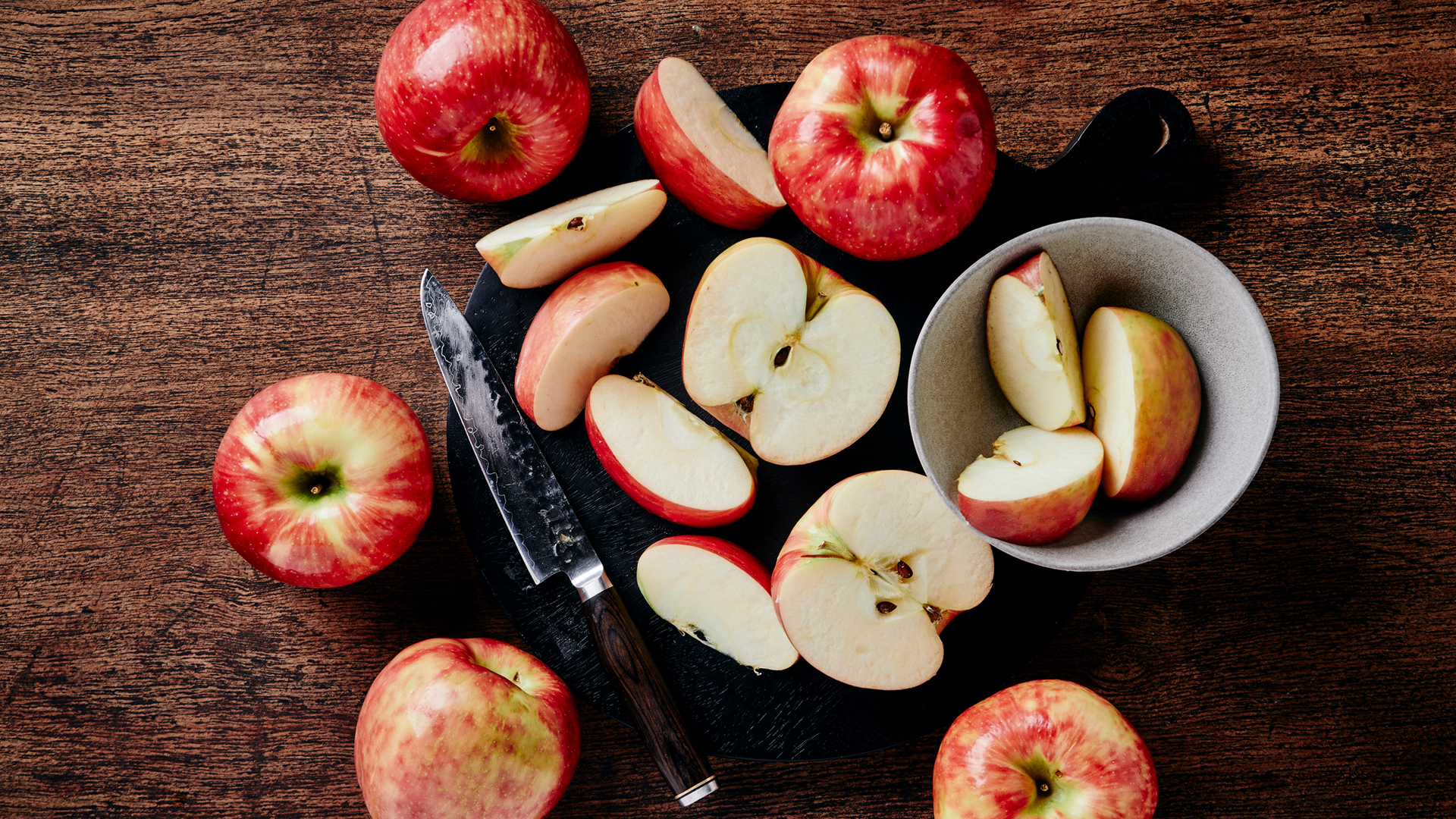
Oats
Many of us wake up in the morning to a steaming bowl of oatmeal. It’s a perfect breakfast that delivers a solid dose of energy to start your day on the right note. Oats are also considered to be one of the best prebiotic foods.
Wholegrain oats in particular are a true nutritional powerhouse. Multiple studies have shown that regular oat consumption can have highly beneficial effects on our cardiovascular and gastrointestinal health. Evidence from nearly fourteen clinical trials has also shown that oats can improve blood glucose levels and lipid profiles of patients with type 2 diabetes.
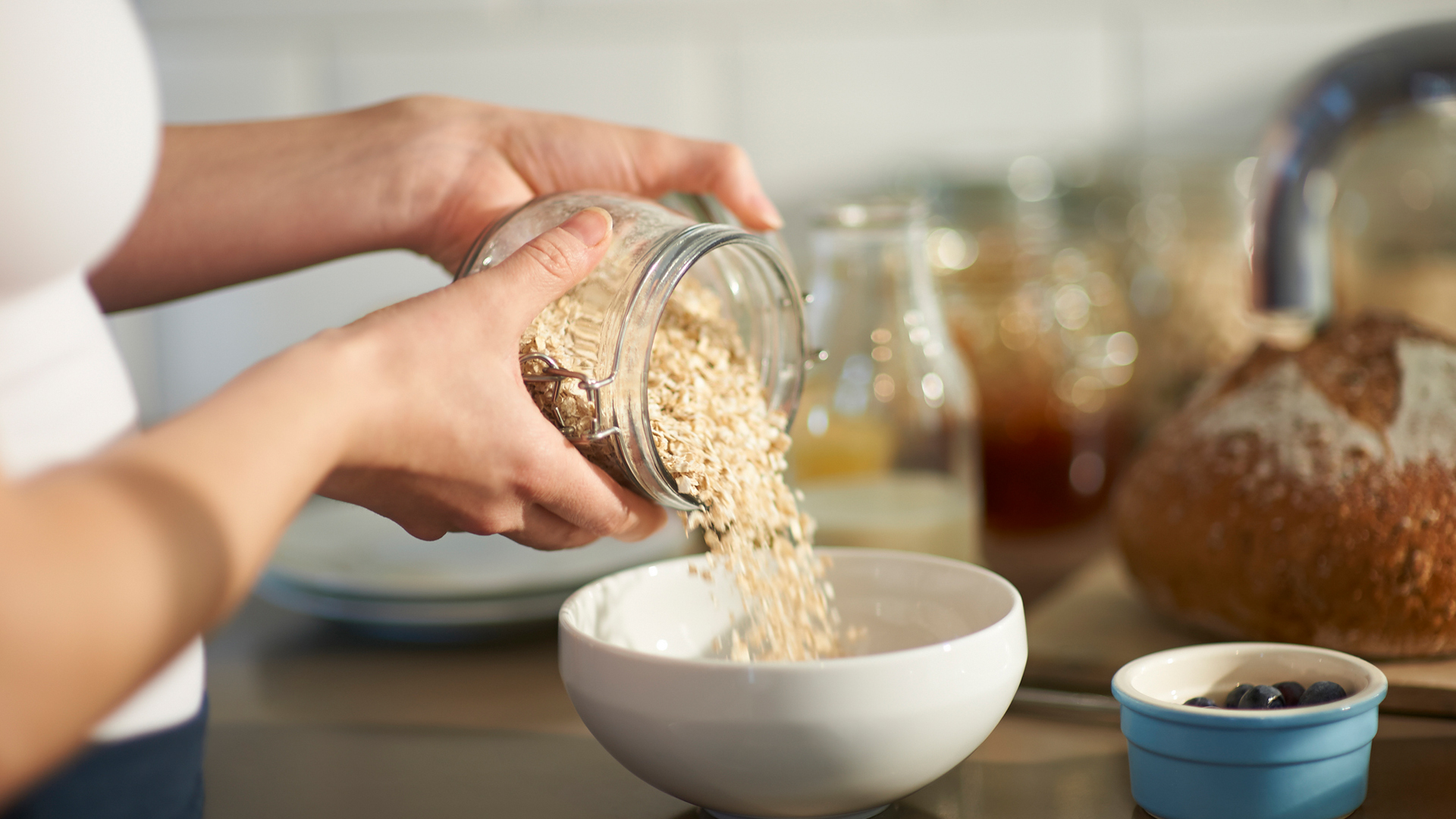
Wholegrain oats are rich in dietary fiber and prebiotic compounds, such as non-starch polysaccharides. They also have a beneficial effect on the growth of Bifidobacterium and Lactobacillus, two strains of good gut bacteria.
Oats contain a significant amount of β-glucans, which have been reported to lower cholesterol levels, significantly change the gut microbiota composition and increase the production of short-chain fatty acids. Beta glucans have also been shown to have a beneficial role in combating insulin resistance, hypertension, and obesity.
How to eat more prebiotic foods
Knowing how to feed our good gut bacteria can make a big difference to our health and wellbeing. “Thankfully there are a wide variety of natural food sources available that contain prebiotics, and also many good quality supplements,” says Dr Michelle Braude, medical doctor, nutritionist and author of The Food Effect.
For many people, eating a balanced diet with a sufficient amount of prebiotics will be enough to maintain good digestive health. However, if you struggle with severe gastrointestinal issues, it may be a good idea to reach out for personalized dietary advice.
“A qualified dietician or nutritionist should be able to guide as to the best prebiotic foods for yourself and your gut, and recommend any supplements if necessary,” adds Braude.
Related: The Mediterranean diet: everything you need to know

Anna Gora is a health writer at Live Science, having previously worked across Coach, Fit&Well, T3, TechRadar and Tom's Guide. She is a certified personal trainer, nutritionist and health coach with nearly 10 years of professional experience. Anna holds a Bachelor's degree in Nutrition from the Warsaw University of Life Sciences, a Master’s degree in Nutrition, Physical Activity & Public Health from the University of Bristol, as well as various health coaching certificates. She is passionate about empowering people to live a healthy lifestyle and promoting the benefits of a plant-based diet.
 Live Science Plus
Live Science Plus





